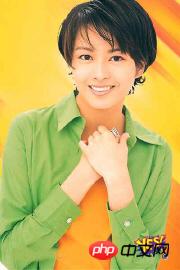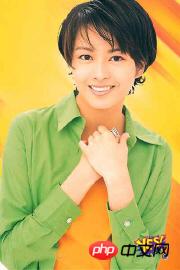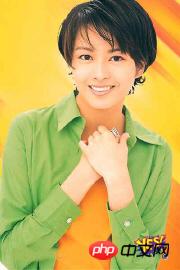css basic tutorial filter effect
1. alpha filter
syntax:
{filter:alpha(opacity=opacity,finishopacity=finishopacity,style=style,startx=startx,
starty=starty,finishx=finishx,finishy=finishy)}" alpha" property blends a target element with the background. designers can specify numerical values to control the degree of blending. this "blending with the background" is colloquially known as the transparency of an element. by specifying coordinates, you can specify the transparency of points, lines, and surfaces.
the meanings of their parameters are as follows:
"opacity" represents the transparency level. the default range is from 0 to 100, which is actually a percentage. that is, 0 represents completely transparent and 100 represents completely opaque.
"finishopacity" is an optional parameter. if you want to set the transparency effect of the gradient, you can use them to specify the transparency at the end. the range is also 0 to 100.
the "style" parameter specifies the shape characteristics of the transparent area. among them, 0 represents a uniform shape, 1 represents a linear shape, 2 represents a radial shape, and 3 represents a rectangle.
"startx" and "starty" represent the starting x and y coordinates of the gradient transparency effect.
"finishx" and "finishy" represent the x and y coordinates of the end of the gradient transparency effect.
the effect is as follows:
 |  | ||
 |  | ||
2. blur filter
syntax: for html:
{ilter:blur(add=add,direction=direction,strength=strength)}for script language:
[oblurfilter=] object.filters.blur
use your finger on an oil painting that is not yet dry when moving quickly, the picture will become blurry. "blur" produces the same blur effect.
the "add" parameter is a boolean judgment "true (default)" or "false". it specifies whether the picture is changed to an impressionistic blur effect. the blur effect is performed in a clockwise direction;
the "direction" parameter is used to set the direction of blur. where 0 degrees represents vertical upward, and then every 45 degrees is a unit. its default value is 270 degrees to the left;
the "strength" value can only be specified using an integer. it represents how many pixels the width will be affected by blurring effects. the default is 5.
for the fonts on the web page, if you set its blur "add=1", then the effect of these fonts will be very beautiful. as follows:
filter:blur(add=ture,direction=135,strength=10)
i fly to you, the rain falls gently!
 |  | ||
 |  | ||
3. fliph, flipv filters
syntax: {filter:filph}, {filter:filpv} are horizontal inversion and vertical respectively reverse, as follows:
 |  |
 |  td> td> |
4. chroma filter
syntax:
{filter:chroma(color=color)} use the "chroma" attribute to set the color specified in an object to be a transparent color. the parameter color is the color to be transparent. below is the blue text, and then use the chroma filter to filter out the blue, so it looks like the following.
filter:chroma(color=blue)
dishuiyanfang
5. dropshadow filter
syntax:
{filter:dropshadow(color=color,offx=ofx,offy=offy,positive=positive)}"dropshaow", as the name suggests, is to add a shadow effect to the object. it works by building an offset, plus a deeper one.
"color" represents the color of the shadow, "offx" and "offy" are the x direction and y direction respectively the offset of the shadow.
"positive" parameter is a boolean value, if it is "true (non-0)", then create a visible shadow for any non-transparent pixels.
if it is "fasle (0)", then create a transparency effect for the transparent pixel part
 |  |
| normal text | the text after dropshadow(color=gray,offx=5,offy=5.positive=0)
6. glow filter
syntax:
{filter:glow(color=color,strength)}when using the "glow" attribute on an object, the edges of this object will have a glow-like effect. "color" specifies the color of the light, and "strength" represents the intensity. this intensity can be specified by any integer from 1 to 255.
the effect after filter:glow(color=red,strength=10)
dishuiyan tea house
the effect after filter:glow(color=#ffff00,strength=5)
dishuiyan tea house span>
it seems that photoshop can be kicked aside, yes ?
the above is the filter effect of the basic css tutorial content, please pay attention to the php chinese website (www.php.cn) for more related content!

Hot AI Tools

Undresser.AI Undress
AI-powered app for creating realistic nude photos

AI Clothes Remover
Online AI tool for removing clothes from photos.

Undress AI Tool
Undress images for free

Clothoff.io
AI clothes remover

AI Hentai Generator
Generate AI Hentai for free.

Hot Article

Hot Tools

Notepad++7.3.1
Easy-to-use and free code editor

SublimeText3 Chinese version
Chinese version, very easy to use

Zend Studio 13.0.1
Powerful PHP integrated development environment

Dreamweaver CS6
Visual web development tools

SublimeText3 Mac version
God-level code editing software (SublimeText3)

Hot Topics
 1359
1359
 52
52
 How to remove the default style in Bootstrap list?
Apr 07, 2025 am 10:18 AM
How to remove the default style in Bootstrap list?
Apr 07, 2025 am 10:18 AM
The default style of the Bootstrap list can be removed with CSS override. Use more specific CSS rules and selectors, follow the "proximity principle" and "weight principle", overriding the Bootstrap default style. To avoid style conflicts, more targeted selectors can be used. If the override is unsuccessful, adjust the weight of the custom CSS. At the same time, pay attention to performance optimization, avoid overuse of !important, and write concise and efficient CSS code.
 How to layout bootstrap
Apr 07, 2025 pm 02:24 PM
How to layout bootstrap
Apr 07, 2025 pm 02:24 PM
To use Bootstrap to layout a website, you need to use a grid system to divide the page into containers, rows, and columns. First add the container, then add the rows in it, add the columns within the row, and finally add the content in the column. Bootstrap's responsive layout function automatically adjusts the layout according to breakpoints (xs, sm, md, lg, xl). Different layouts under different screen sizes can be achieved by using responsive classes.
 How to build a bootstrap framework
Apr 07, 2025 pm 12:57 PM
How to build a bootstrap framework
Apr 07, 2025 pm 12:57 PM
To create a Bootstrap framework, follow these steps: Install Bootstrap via CDN or install a local copy. Create an HTML document and link Bootstrap CSS to the <head> section. Add Bootstrap JavaScript file to the <body> section. Use the Bootstrap component and customize the stylesheet to suit your needs.
 How to use bootstrap button
Apr 07, 2025 pm 03:09 PM
How to use bootstrap button
Apr 07, 2025 pm 03:09 PM
How to use the Bootstrap button? Introduce Bootstrap CSS to create button elements and add Bootstrap button class to add button text
 How to set the bootstrap navigation bar
Apr 07, 2025 pm 01:51 PM
How to set the bootstrap navigation bar
Apr 07, 2025 pm 01:51 PM
Bootstrap provides a simple guide to setting up navigation bars: Introducing the Bootstrap library to create navigation bar containers Add brand identity Create navigation links Add other elements (optional) Adjust styles (optional)
 How to insert pictures on bootstrap
Apr 07, 2025 pm 03:30 PM
How to insert pictures on bootstrap
Apr 07, 2025 pm 03:30 PM
There are several ways to insert images in Bootstrap: insert images directly, using the HTML img tag. With the Bootstrap image component, you can provide responsive images and more styles. Set the image size, use the img-fluid class to make the image adaptable. Set the border, using the img-bordered class. Set the rounded corners and use the img-rounded class. Set the shadow, use the shadow class. Resize and position the image, using CSS style. Using the background image, use the background-image CSS property.
 How to upload files on bootstrap
Apr 07, 2025 pm 01:09 PM
How to upload files on bootstrap
Apr 07, 2025 pm 01:09 PM
The file upload function can be implemented through Bootstrap. The steps are as follows: introduce Bootstrap CSS and JavaScript files; create file input fields; create file upload buttons; handle file uploads (using FormData to collect data and then send to the server); custom style (optional).
 How to view the date of bootstrap
Apr 07, 2025 pm 03:03 PM
How to view the date of bootstrap
Apr 07, 2025 pm 03:03 PM
Answer: You can use the date picker component of Bootstrap to view dates in the page. Steps: Introduce the Bootstrap framework. Create a date selector input box in HTML. Bootstrap will automatically add styles to the selector. Use JavaScript to get the selected date.




